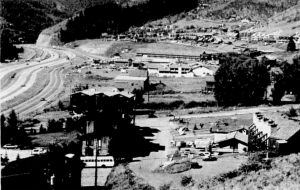Eagle County program to entice homeowners to take units out of the short-term rental pool off to a slow start
'Rent local' program off to a slow start so far

Unsplash
- The Eagle County Rent Local program may provide a cash incentive to eligible landlords to convert a short-term rental to a long-term units. The offer applies to a rental unit, vacant home or extra bedroom.
- In exchange, the landlord has to agree to gear rental rates to 100% of the area median income.
- For more information, go to housingeaglecounty.com.
Eagle County is trying to convince homeowners to stay out of the short-term rental pool, and is offering cash to do so. But the program is off to a slow start.
In a recent update to the Eagle County Board of Commissioners, Housing Director Kim Bell Williams said the program, called “Rent Local,” has had only limited success so far, with just two program participants so far. But the effort will continue.
Summit County has had a similar program, called “Lease to Locals,” in place for a while now. There are 58 units in the program, and 128 people are staying in those units.
Summit County Housing Director Jason Dietz said the program also got off to a slow start. But the cash incentives are significant. Dietz said a studio unit owner can see up to $10,000 for a 12-month lease to a local resident.
The average per-bedroom subsidy is $6,909 per bedroom per year.

Support Local Journalism
That’s a significant outlay, but it’s still less expensive than building, Dietz said.
Dietz noted the Summit County program started before the county imposed short-term rental regulations. Neighborhoods were identified, and owners surveyed, and then invited to participate.
A private partner
The Summit County program is administered by a private firm, Place Mate.
In a conversation subsequent to her presentation to the commissioners, Bell Williams said that firm, which started in the Lake Tahoe area, has helped Summit County hit its goals with its program.
Bell Williams acknowledged that Eagle County’s program hasn’t really taken off yet, “but we’re going to keep trying.” Part of that effort is likely to include Place Mate, which so far has just been advising the local effort.
Eagle County also offers subsidies and has $395,000 budgeted this year to pay unit owners.
There are strings attached, of course. Program participants are subject to annual compliance checks, and rental rates must be aimed at those earning no more than 100% of the area median income. That income is just less than $90,000 per year for a three-person household.
Besides money, Bell Williams said there are other advantages to having long-term tenants in a unit.
“This takes away the need to clean, plow snow and do the trash,” she said. “Someone is there taking care of the needs of the house.”
Numbers don’t always add up
Dietz noted that promised short-term rental revenue doesn’t always live up to the numbers pitched by short-term rental firms.
Dietz said long-term rental management is usually about 15% of the income. Short-term units are closer to 50% for management. And, in a “labor-challenged” market, it can be hard to ensure people will be available to do the work needed after every stay.
The future of the incentive program in Summit County is “to be determined,” Dietz said, and is ultimately up to those county commissioners. Still, he added, the cost of the program so far is still much less than the cost of building units, which wouldn’t yet be ready for occupancy.
The Eagle County commissioners seem willing to continue the local program, at least for a while.
“This seems like a relatively cheap way” to house people, Commissioner Jeanne McQueeney said. And, she added, long-term rentals are exempt from lodging taxes.
Commissioner Kathy Chandler-Henry noted that some local hotels are starting to advertise the benefits of staying in a hotel versus “squeezing into a neighborhood.”









